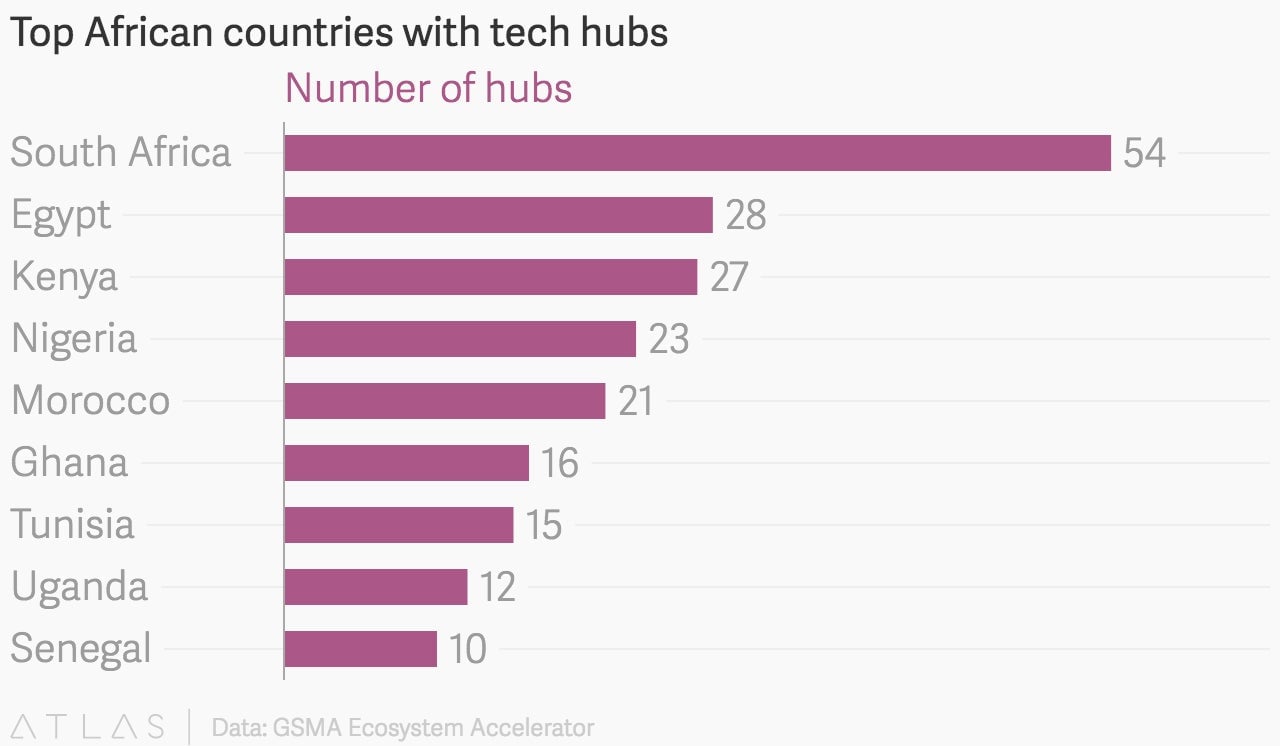Wayde’s world, Nigeria’s e-payments, Chinese Kiswahili poems
Hi, Quartz Africa readers!

Hi, Quartz Africa readers!
[insertSponsor]
It’s the data, stupid
Back in February, our Quartz colleague Christopher Groskopf, wrote an analysis post titled: “Why is Central Africa missing from so many maps?”. His query wasn’t about the details of the history and geopolitics in the region but on the frequent lack of data and its implications for development in those countries.
This challenge isn’t unique to Central Africa, it’s a continent-wide issue. This week we published another piece: ”Poor data hurts African countries’ ability to make good policy decisions‘. Again, African Population and Health Research Center’s Donatien Beguy points out that without reliable data, and the rigorous analysis to go with it, many African leaders and governments are simply shooting in the dark when it comes to policy-making. As both pieces argue, how can we make a valid decision on whether to build a school if we don’t know how many children of school age are in the country in the first place? This is why some optimistic discussions about the size of Africa’s rising middle class are treated with caution and sometimes outright suspicion.
Fortunately, several local startups and entrepreneurs are laying the groundwork to help countries and international investors avoid having to rely on gut instinct and tradition. They’re using a mix of organizational ingenuity and mobile technology among other things to reach everyday Africans. The collection and research of consumer data has become an important fast-growing business sector across the continent.
Having accurate and reliable data in itself won’t overcome all of Africa’s challenges but the only way we’ll know that’s true is if we have the data in the first place.
Yinka Adegoke, Quartz Africa editor
Five stories from this week
Fixing Nigeria’s multibillion-dollar payment problem. Nigeria’s growing online business space has dealt with several problems, but the lack of reliable payments infrastructure has remained constant. Failed payments have limited the growth and cash flow potential of local e-commerce players . But that’s starting to change, writes Yomi Kazeem, thanks to a number of local startups focused on payments solutions.
Racial politics in South Africa. While the term ‘coloured’ seems antiquated and cringe-worthy in some social contexts, it is still a recognizable identity and culture in South Africa. Elsewhere, Olympics 400m champion Wayde van Niekerk would probably have been black. In South Africa, his racial classification remains a key identifier as he moves through the world, explains Lynsey Chutel.
Driving scientific progress in Africa. There’s a basic assumption scientific research leads to technological innovations. Not so for Africa, argues Harvard’s Calestous Juma. He says this one-dimensional view doesn’t support the reality in the continent. Instead, reverse the order and focus on technology first rather than science to provide solutions for day-to-day problems.
Translating Chinese poetry into Kiswahili. The work of Jidi Majia, a poet from the Yi-Nuosu minority in southwest China, has been translated into Kiswahili and published in Kenya. The collection, Words of fire from China, underlines strengthening Kenya-China ties but also a less obvious connection, the resilience of indigenous cultures, writes Lily Kuo.
Uganda’s closing Zuckerberg/Gates-backed schools. Uganda has ordered the closure of all 63 Bridge International Academies operated by the for-profit school chain. Bridge International is backed by the World Bank, Mark Zuckerberg, Bill Gates and others. Uganda’s education ministry says the schools’ poor hygiene and sanitation put students in danger, but Bridge calls these “false allegations.”
Chart of the Week
Tech hubs in Africa have than more doubled. There are now more than 300 hubs in Africa spread across 93 cities in 42 countries in Africa. More than half of these hubs are also concentrated in just five countries. But as Abdi Latif Dahir writes, the continent is yet to see how the mass proliferation of these tech outlets translate into direct benefits for the people.

Other things we liked
Silicon Valley’s newfound interest in African startups. TechCabal’s Osarumen Osamuyi points out international incubators are pouring money into African startups, leveling the playing field, helping develop interesting products, and providing diversified solutions to the challenges facing the continent and beyond.
Lights. Camera. Catwalk. A new book titled “African Catwalk” by the South Africa-based photographer Per-Anders Pettersson takes you inside the burgeoning industry. Over the last five years, Pettersson has documented more than 40 fashion events in 16 countries across the continent.
The quest to find the slave ships that sank off the African coast. For years, finding shipwrecks of slave ships was considered too hard and expensive, writes Kevin Sieff for the Washington Post. Few African researchers were willing to take on the project in countries where the slave trade is often considered a source of shame. That attitude is changing with the work of a Senegalese archaeologist.
Keep an eye on
Tokyo International Conference on African Development, Nairobi (Aug. 27-28). The sixth Japan-Africa conference will be the first one to be held on the continent since its launch in 1993. The conference works to promote key issues like industrialization, social stability, health services and more. Thirty-five heads of state and over ten thousand delegates are expected to attend the event.
Elections in Gabon (Aug. 27). Gabon will go to the polls this week, in an election that will see the incumbent Omar Bongo face the former chairman of the African Union commission, Jean Ping. Ping, who was once the president of the UN General Assembly, was chosen by opposition parties this week to face Bongo. Fourteen other candidates are also partaking in the election.
Our best wishes for a productive week ahead. Please send any news, comments, electronic payments and Chinese Kiswahili poems to [email protected]. You can follow us on twitter at @qzafrica for updates throughout the day.